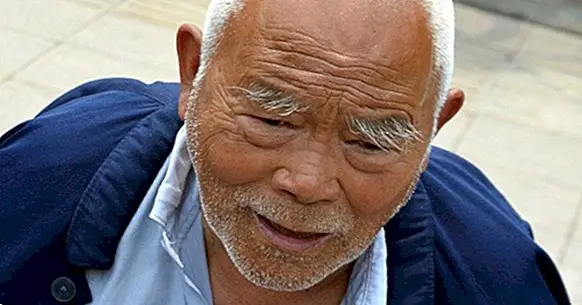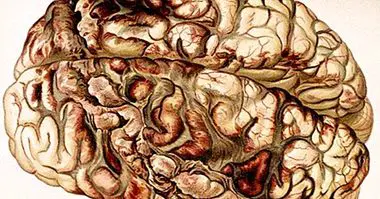The role of Psychology in irreversible processes: 5 attitudes towards death
Undeniably, in many of the fields where the professional of psychology participates, phenomena related to loss processes . When the loss becomes irreversible, as in cases of death, the psychologist aims to respond to the consequent emotional demands of the environment. There are many areas where this type of phenomenon occurs.
For example, a psychologist specialized in gerontological care will be exposed to the death of elderly people continuously and their duty is to be able to respond to the demands of family members as well as having the resources to face their own death. Even more evident in units of hospital oncology, attention in grief processes or psychological intervention in emergencies and disasters, among others. However, what are the most frequent attitudes towards death and dying?
Five attitudes towards death
According to Concepció Poch, in his book The Mort (Editorial UOC, 2008), there are five "classic" ways of facing the phenomenon of death .
1. Denial
First, Denial or indifference , which consists in avoiding the presence of death to the maximum, including reflection on it, living as if it did not exist. This widespread attitude of treating death as a taboo subject is a common practice in Western culture.
2. Challenging attitude
Second, there are people who they approach death omnipotently and defiantly , what colloquially would mean "gambling life." We live as if we were never to die and we expose ourselves to the phenomenon consciously. The common thinking in this type of people is usually "it will not happen to me".
3. Anguish
Third, fear and anguish. People who connect from this attitude acquire a pessimistic and hopeless cognitive style before life and tend to repeat questions related to the uncertain character of the grim reaper: "What is the meaning of life and death?" "How and when will I die? "
As Concepció Poch (2008) expresses, some psychologists specify the fear of death in very human experiences: regret not ending projects, not accepting the end of one's temporary existence, fear of illness or dying with suffering and physical pain. It is also true that death is scary because it does not respond to any of the uncertainties it raises, What will be next? Is there life beyond death?
4. Release
A fourth approach to death would be from a liberation or relief point of view . Freeing the body and mind of a painful, dependent or routine existence is the horizon that some people want to achieve. In that sense, controversies of opinion on the debates of the euthanasia or the suicide are generated, for example.
5. Acceptance
Perhaps, the approach or the healthiest attitude is that of realism and acceptance . The resigned and realistic attitude has a pragmatic character that accepts death as a radical and authentic reality. In this sense, being aware of the finite nature of the human being, not from a tragic point of view, educates us to value life and, above all, the negative avatars and the twists of fate that death holds. Death is educating us as the main agent of change in our lives. According to Raffaele Mantegazza (2006), in order to speak seriously about death, it is necessary to learn to die.
How many people do we know who have changed their lifestyle when they have had a near-death experience? Why do we usually wait for death to realize the important things in life? As a faculty member said, "we prepare ourselves for everything but the most important". If, for example, the death of loved ones breaks down frequently in the life trajectory ...
Why do not we learn to understand those processes? Why do not we put the will to accept death? Why do we keep denying it and "dodging"? The professional of psychology has an interesting plot where to continue developing his skills to help people ... What are we waiting for?
Bibliographic references:
- Mantegazza, R., (2006). Death without a mask Barcelona. Herder Editorial
- Poch, C., (2008). The mort. Barcelona. Editorial UOC



















